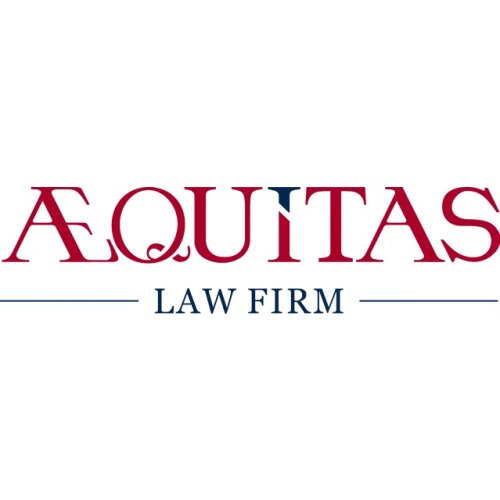Best Tax Lawyers in Almaty
Share your needs with us, get contacted by law firms.
Free. Takes 2 min.
List of the best lawyers in Almaty, Kazakhstan
About Tax Law in Almaty, Kazakhstan
Tax law in Almaty, Kazakhstan refers to the laws and regulations governing the payment of taxes by individuals and businesses in the city. Taxes are imposed by the government to fund public services and infrastructure. It is important to comply with tax laws to avoid penalties and legal consequences.
Why You May Need a Lawyer
You may need a lawyer for tax-related issues if you are facing an audit by the tax authorities, need help with tax planning, are involved in a tax dispute, or are starting a business and need advice on tax compliance. A lawyer can provide legal guidance, represent you in negotiations with tax authorities, and ensure that your rights are protected.
Local Laws Overview
In Almaty, Kazakhstan, the tax system is governed by the Tax Code of the Republic of Kazakhstan. Key aspects of local tax laws include income tax, value-added tax, property tax, and social tax. It is important to understand these laws to fulfill your tax obligations and avoid legal issues.
Frequently Asked Questions
1. How are taxes calculated in Almaty?
Taxes in Almaty are calculated based on the Tax Code of the Republic of Kazakhstan, which outlines the rates and rules for different types of taxes.
2. What are the common deductions available for individuals in Almaty?
Common deductions for individuals in Almaty include deductions for dependent family members, education expenses, and donations to charitable organizations.
3. What are the penalties for non-compliance with tax laws in Almaty?
Penalties for non-compliance with tax laws in Almaty may include fines, interest on unpaid taxes, and legal action by the tax authorities.
4. How can I appeal a tax decision in Almaty?
You can appeal a tax decision in Almaty by submitting a formal appeal to the tax authorities and, if necessary, seeking legal representation to challenge the decision in court.
5. What are the tax incentives available for businesses in Almaty?
Tax incentives for businesses in Almaty may include reduced tax rates for certain industries, investment credits, and exemptions for foreign investors.
6. How can I minimize my tax liability in Almaty?
You can minimize your tax liability in Almaty by utilizing available deductions, tax planning strategies, and seeking advice from a tax lawyer or accountant.
7. What are the common types of tax disputes in Almaty?
Common types of tax disputes in Almaty include disputes over tax assessments, deductions, tax credits, and penalties imposed by the tax authorities.
8. Can a tax lawyer help me with tax planning in Almaty?
Yes, a tax lawyer can help you with tax planning in Almaty by analyzing your financial situation, advising on tax-saving strategies, and ensuring compliance with tax laws.
9. How long do I have to keep tax records in Almaty?
In Almaty, you are required to keep tax records for at least five years from the end of the tax year to which the records relate.
10. What should I do if I receive a tax audit notice in Almaty?
If you receive a tax audit notice in Almaty, you should consult a tax lawyer immediately to prepare for the audit, gather necessary documents, and represent you during the audit process.
Additional Resources
For more information on tax laws in Almaty, Kazakhstan, you can visit the official website of the Tax Committee of the Ministry of Finance of the Republic of Kazakhstan or seek advice from the Kazakhstan Bar Association.
Next Steps
If you need legal assistance with tax matters in Almaty, Kazakhstan, consider consulting a tax lawyer who is experienced in local tax laws and regulations. A lawyer can help you navigate complex tax issues, protect your rights, and ensure compliance with tax laws.
Lawzana helps you find the best lawyers and law firms in Almaty through a curated and pre-screened list of qualified legal professionals. Our platform offers rankings and detailed profiles of attorneys and law firms, allowing you to compare based on practice areas, including Tax, experience, and client feedback.
Each profile includes a description of the firm's areas of practice, client reviews, team members and partners, year of establishment, spoken languages, office locations, contact information, social media presence, and any published articles or resources. Most firms on our platform speak English and are experienced in both local and international legal matters.
Get a quote from top-rated law firms in Almaty, Kazakhstan — quickly, securely, and without unnecessary hassle.
Disclaimer:
The information provided on this page is for general informational purposes only and does not constitute legal advice. While we strive to ensure the accuracy and relevance of the content, legal information may change over time, and interpretations of the law can vary. You should always consult with a qualified legal professional for advice specific to your situation.
We disclaim all liability for actions taken or not taken based on the content of this page. If you believe any information is incorrect or outdated, please contact us, and we will review and update it where appropriate.











